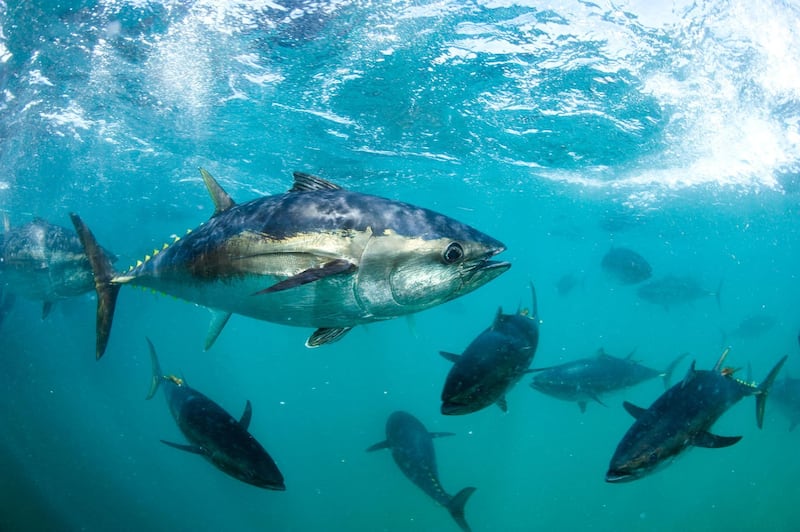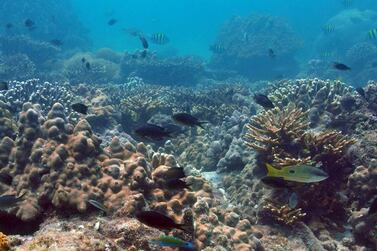It may sound like science fiction, but lab-grown fish could hit your dinner plate a lot sooner than you think.
A California start-up claims it will bring engineered bluefin tuna to the shelves – including potentially the UAE – in a matter of years.
Finless Foods says its products can reduce pressure on dwindling stocks of wild fish, slash the number of tuna fleets harvesting the seas and ultimately be more affordable.
"From one tuna you can effectively get an infinite amount of fish meat," said Michael Selden, co-founder of the company. "There are no antibiotics and we don't add growth hormones. We are effectively immortalising the cells."
Mr Selden’s comments were made on the sidelines of the World Ocean Summit, a high-level event to confront the threats facing the world’s oceans. And overfishing is one.
His pitch may be a lofty one but the problem is real – the United Nations last year said that a third of the world's seas are overfished, while global fish consumption has reached the highest levels recorded.
The process to make fish from cells is complex and, without going into too much jargon, works like this: the company's scientists take cells about the size of a grain of rice from a tuna that has just died. These cells are fed nutrient-rich ingredients such as salts, sugars and protein, which make them multiply and grow. What results is a type of fish paste.
The company has already developed fish cakes that use 30 per cent of this paste. They have just hired a chef and are also exploring making tuna rolls. “[Our fish] tastes better. I eat it all the time and it is safe,” he said.

Critics have dismissed lab-grown meat and seafood as “frankenfoods” but Mr Selden bristles at this description, and says his company is simply trying to make sustainable seafood.
There is no doubt that people are increasingly concerned about the effect meat and fish consumption is having on the planet. It is thought that about a quarter of greenhouse gas emissions come from traditional agriculture.
But money is now surging into these start-ups and in 2013 a Dutch team said they had produced the world’s first lab-grown burger. Despite the hype, mass-produced cultured meat and fish has not yet been regulated for sale to the public anywhere in the world.
Companies such as Finless Foods will have to surmount many obstacles. Regulators are scrambling to deal with this new frontier and there is also the issue of price. Finless Foods first wants to achieve parity with the cheapest type of bluefin tuna – currently about $7 (Dh25) for a piece of sashimi.
“At the start we think it will be a luxury product,” he said. But they intend to cut the price even more to break into a global seafood market worth $120 billion (Dh440.7bn) a year.
Mr Selden believes that soon there will no longer be a need to retrieve more cells from bluefin tuna. The company is trying to create a type of seed bank for fish, removing the need for catching wild species.
Within five years, Finless Foods also aims to sell actual fish meat steaks.
“We don’t think 2019 is unrealistic but we are not saying timelines any more because the regulators felt we were putting too much pressure on them. If they don’t trust it, people are not going to trust it.”
Not bad for a company formed only in 2017, has a team of just 11 and has not yet spent the $4.5 million raised. Mr Selden said they are focused on markets in the US, China, Canada and Japan but are interested in the UAE.
“We are not here to sneak anything into the food supply. We want people to buy this on purpose,” he said. “I can’t imagine a future in which this isn’t the way meat is made.”
The World Ocean Summit concludes on Thursday.







